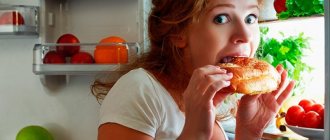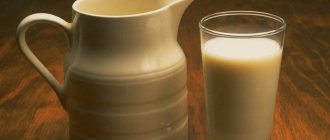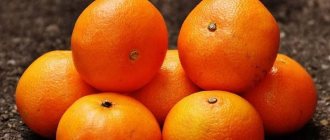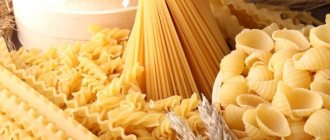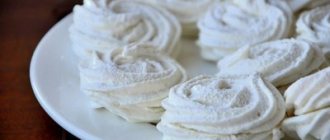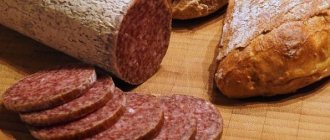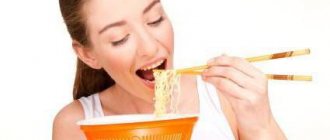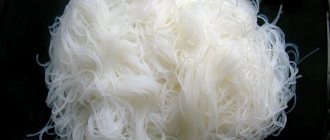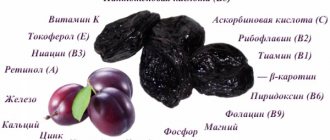The wine diet is not the dream of a lonely girl, as it might seem at first glance, but a real-life method of combating excess weight.
Heated discussions about the possible benefits and potential harms of drinking wine have been going on for a long time: some believe that the drink contains flavonoids that effectively counteract “bad” cholesterol, others recall the deplorable state of a hangover, which neutralizes any positive effect of an alcoholic drink on the human body.
The truth is that limited consumption of wine (no more than one glass of 250 ml per day) not only prevents the risk of developing cardiovascular diseases, but can also become a faithful assistant in the fight for a beautiful body.
What is a wine diet for weight loss
The wine diet is an effective nutrition method that allows you to lose 5 kg or more in just 5 days. It is based on the consumption of white, rose and red dry wine throughout the diet.
What is the secret of losing weight using this technique? Weight loss is achieved by removing excess fluid from the body and burning fat. During the diet, it is forbidden to drink sweet and semi-sweet wines, as they contain a large amount of carbohydrates.
It is preferable to drink the following drinks:
- Muscat;
- Isabel;
- Chardonnay;
- Sauvignon Blanc;
- Pinot Noir.
Red wine is good for the body as it contains:
- titanium;
- magnesium;
- potassium;
- selenium;
- antioxidants;
- chromium;
- fluorine;
- zinc;
- resveratrol;
- iron, etc.
Resveratrol, which is part of wine, helps reduce the risk of developing cancer, as well as prevent complications from the cardiovascular system.
Beneficial properties of red wine:
- strengthening the immune system;
- reducing bad cholesterol levels;
- stabilization of metabolic processes and metabolism;
- acceleration of fat burning processes;
- To result in the removal of toxins and heavy metal salts;
- reducing the risk of stroke;
- protection of blood vessels from the development of atherosclerosis;
- improvement of vitality;
- preventing the development of digestive tract disorders.
You can stick to this method of losing weight no more than once every 2 months.
Wine diet rules
To achieve the desired result, you will need to follow some rules during the diet. Here they are:
- Completely eliminate salt and salty foods from your diet. This will remove excess fluid and harmful substances from the body.
- During the diet, forget about consuming sugar-containing foods.
- When losing weight, give preference to red wine, as it is healthier for the body. If you cannot drink it, then opt for a white alcoholic drink.
- Limit your carbohydrate intake.
- While losing weight, drink clean still water and wine. Tea, coffee, mineral water, juices and carbonated drinks are prohibited.
- The consumption of semi-finished products and fast foods is prohibited.
- When losing weight, you need to eat only fresh foods.
- Red wine is a high-calorie product, so you must adhere to the recommended dosage.
- Only people over 18 years of age can follow the wine diet.
- You cannot follow this nutritional method during pregnancy and lactation. This is due to alcohol intake and low calorie foods consumed.
- Take a multivitamin.
- Drink wine during or immediately after meals.
- At the first sign of deterioration in your health, immediately stop following wine days. Better pay attention to other diets, for example, military, keto, Kremlin, watermelon and drinking.
- If, while losing weight, you stray from the recommended menu, then it is useless to continue to adhere to this nutritional method. Rest for a week with 1 fasting day, then start the wine diet again.
An important condition before following a diet is consultation with a specialist.
Important Terms
To achieve maximum results, it is recommended to comply with the following important conditions:
- completely abandon salt, which will remove excess fluid from the body along with all waste and toxins;
- exclude all sugar-containing products;
- Be sure to consult a nutritionist or doctor before starting a diet;
- It is better to give preference to dry red wine;
- eliminate carbohydrates;
- You can only drink wine and still, plain water;
- tea, mineral water, juices, coffee and other alcoholic drinks (except wine) are prohibited;
- consumption of semi-finished products and fast food is unacceptable;
- all products must be the freshest.
Red wine is very high in calories, so it is important to adhere to the recommended dosages for the diet to be as effective as possible.
Advantages and disadvantages of the diet
Like any diet, the wine diet has its pros and cons.
Benefits include:
- short term diet;
- minimum weight loss is minus 5 kg;
- eliminating salt from the diet has a beneficial effect on the condition of the body;
- red wine has a positive effect on the functioning of the cardiovascular system;
- availability and low cost of products.
Minuses:
- Reduced daily calorie content (600-1000 kcal). This diet is stressful for the body. Because of this, fatigue occurs, loss of strength, and there is no opportunity to fully engage in sports.
- Wine activates fermentation processes in the intestines, as a result of which flatulence and bloating are likely to occur.
- Most excess weight disappears due to water, not fat. If you return to your usual diet immediately after the diet, the lost kilograms will return.
- Drinking wine with a small amount of food consumed leads to rapid intoxication. This is especially true for people who rarely drink.
- Alcohol increases your appetite, and when you're drunk, your inhibitions seem less significant, which can cause you to break your diet.
- Loss of strength while losing weight.
- Inability to drive.
Advantages and disadvantages
| pros | Minuses |
|
|
Wine diet for 3 days
Sticking to this diet will be difficult for those who are used to eating a lot. Drinking wine helps increase appetite. Therefore, if you dream of becoming slimmer, you will need to take your will into your fist and go towards your goal.
During the diet, drink at least 2 liters of water per day to speed up the removal of harmful substances from the body.
For all 3 days the menu is as follows:
- breakfast - green apple, 150 ml of wine;
- snack - 200 ml of wine;
- lunch - 150 ml of wine and 200 g of whole grain loaf;
- afternoon snack - 2 green apples;
- dinner - 250 ml of wine.
This diet is low-calorie, because of this, weakness and intoxication will accompany you throughout the entire period of the diet. If the proposed menu does not suit you, then choose another one from those suggested below.
Option one:
- breakfast - 2 boiled eggs;
- snack - 100-150 g of low-fat cottage cheese;
- lunch - 200 ml of wine, grilled beef steak (on a grill pan with a drop of oil);
- dinner is the same as lunch.
Option two:
- breakfast - 200 g baked chicken breast, 150 ml Sauvignon Blanc;
- snack - green apple;
- lunch - 200 ml of wine, 2 whole grain slices of whole grain bread with cheese;
- dinner - 50 ml of wine, 200 g of low-fat cottage cheese.
For 5 days
A wine diet is a serious stress for the body, so it is necessary to create a menu in such a way that the daily calorie content of foods is at least 1200 kcal.
Drink 1-2 glasses of dry white or red wine daily. The safe volume for women is 50 ml, for men - 80 ml. Eat small meals, at least 5-6 times a day, and the serving size should not exceed 200 g.
The diet for 5 days should contain the following products:
- lean beef, chicken breast;
- sea bass, carp, carp, flounder;
- whole wheat bread;
- chicken and quail eggs;
- low-fat cottage cheese, kefir and natural yogurt;
- cheeses whose fat content does not exceed 30%;
- greens, tomatoes and cucumbers;
- green apples, grapefruit, kiwi, oranges.
Boil meat and fish, bake, stew or fry in a grill pan, but without oil. Do not use spices or salt. Try to make the menu as varied as possible.
The recommended foods are filling, so you won’t feel constantly hungry.
Proper dieting helps you lose weight by 2-4 kg.
A sample menu for the day looks like this:
- breakfast - vegetable salad with eggs, 100 ml of wine and whole grain bread;
- snack - fruit salad;
- lunch - 50 g of cheese, whole grain bread and boiled fish;
- afternoon snack - 250 ml kefir;
- dinner - 150 ml of wine, baked chicken breast.
Authorized Products
The wine diet involves drinking dry red wine. You need to drink 1.5 liters daily. Fruits you can eat are citrus fruits and apples. Vegetables are allowed for consumption only fresh (tomatoes, cucumbers). Every day you need to drink 1.5 liters of clean water.
What kind of wine can you drink while on a diet?
To really lose weight with the help of a burgundy drink, it is recommended to approach its choice with special responsibility. Wine during a diet must be of high quality. Give preference to dry, dark-colored wines. Today, stores offer a huge range of different varieties in different price ranges. But an expensive drink is not always of high quality.
If you wish, you can find high-quality Russian brands at affordable prices. Under no circumstances should you take sweet/semi-sweet wine. The advantage of dry wine is its low sugar content, which is very important in the process of losing weight. Red wine is the leader among drinks in terms of resveratrol .
Is it possible to drink white wine on a wine diet?
If you are clearly intolerant to red wine, you can opt for dry white varieties, but this does not guarantee that you will achieve the results promised by the diet.
How much wine can you drink?
For weight loss, the optimal intake is 340 ml, which corresponds to two glasses. Wine should be drunk either during meals or immediately after. Compliance with these recommendations will prevent fat deposition, because... the active substances contained in wine will actively inhibit this process.
To speed up the weight loss process, you can drink dry red wine at night. During sleep, active substances will cleanse the body of waste and toxins.
Table of permitted products
| Proteins, g | Fats, g | Carbohydrates, g | Calories, kcal | |
| cucumbers | 0,8 | 0,1 | 2,8 | 15 |
| tomatoes | 0,6 | 0,2 | 4,2 | 20 |
| oranges | 0,9 | 0,2 | 8,1 | 36 |
| grapefruit | 0,7 | 0,2 | 6,5 | 29 |
| apples | 0,4 | 0,4 | 9,8 | 47 |
| berries | 0,7 | 0,3 | 9,4 | 44 |
| porridge | 3,3 | 1,2 | 22,1 | 102 |
| cheese | 24,1 | 29,5 | 0,3 | 363 |
| cottage cheese 0% (low fat) | 16,5 | 0,0 | 1,3 | 71 |
| chicken | 16,0 | 14,0 | 0,0 | 190 |
| turkey | 19,2 | 0,7 | 0,0 | 84 |
| chicken eggs | 12,7 | 10,9 | 0,7 | 157 |
| fish | 18,5 | 4,9 | 0,0 | 136 |
| dry red wine | 0,2 | 0,0 | 0,3 | 68 |
| water | 0,0 | 0,0 | 0,0 | — |
| * data is per 100 g of product | ||||
For 12 days
If you are trying to lose 5 kg or more, then a wine diet for 7 days or longer is suitable for you.
The weekly diet menu is quite simple: adhere to the principles of proper nutrition and add a glass of wine to it. Eliminate junk food from your diet, eat small meals and exercise. Write down everything you eat to calculate your daily calorie intake. Remove from the menu those foods that do not bring any benefit.
If your goal is to lose 10 kg, then the 12-day nutrition system will help you with this. The diet is strict, so take a multivitamin while on it. The recommended nutritional system negatively affects overall well-being and performance, so it is best to follow it during vacation.
The system includes 4 mono-diets, each lasting 3 days:
- Days 1-3 - 1.5 liters of kefir with 0% fat content;
- 4-6 days - apples;
- 7-9 days - stewed, baked, boiled chicken;
- 10-12 days - dry red wine and hard cheese (at the rate of 30 g of cheese to 1 glass of alcoholic drink).
Diet during radiotherapy
The patient is not forced to eat, as vomiting may occur. If he has a need for food outside the regime, then a deviation from the meal schedule is possible.
What's better to add to your diet?
Nutrition during cancer radiation therapy should include:
- cereal porridges cooked in water (buckwheat, oatmeal, rice, barley);
- apples or other fruits baked with honey;
- butter added to ready-made dishes.
The number of meals during the day is 5-6 times, snacks are possible if desired. When drawing up the menu, the patient's taste preferences are taken into account. If vomiting begins, then abstain from food and liquids for 3-7 hours. After waiting, take semi-liquid food in small volumes, chewing thoroughly. A small piece of lemon or a few cranberries helps suppress nausea.
What will you have to give up?
When undergoing radiotherapy the following is prohibited:
- frying food, adding hot seasonings, large amounts of fat, smoking;
- products that have a specific taste and smell;
- using large amounts of sugar when preparing dishes;
- large amounts of food causing stomach fullness;
- food that is too hot or cold;
- eating immediately before bed or radiation therapy session.
Products useful for radiation therapy
Food should be easily digestible and contain the required amount of calories; for these purposes, the following is added to the diet:
- all types of fermented milk products, including cottage cheese;
- vegetables and leafy greens;
- pumpkin and sunflower seeds, walnuts;
- low-fat fish and other seafood;
- oranges, tangerines, bananas, apples, dried fruits;
- seasonal or frozen berries;
- chicken eggs;
- porridges from various cereals.
In case of protein-energy deficiency, energy-intensive foods are consumed: eggs, red caviar, pates, butter. For stomach problems, it is good to use specialized baby food.
Compliance with drinking regime during irradiation
During radiation therapy, toxins can form in the body due to the breakdown of tumors exposed to radiation. To remove toxic substances, you need to drink plenty of fluids. In addition, fluid is required to normalize metabolic processes, prevent constipation, and prevent the formation of stones in the bladder. If the excretory function of the kidneys is not impaired, then it is advisable to drink 2-2.5 liters of water (still) during the day.
Part of the daily fluid intake is replaced with the following drinks:
- fruit and berry compotes and fruit drinks;
- juices of beets, tomatoes, carrots, apples, containing pulp and diluted 50% with water;
- green loose leaf tea (pour boiling water, drain this water and brew again);
- decoctions of milk thistle, rose hips, infusions of nettle, chamomile (according to symptoms).
Important!
The temperature of liquids should be close to room temperature; in case of nausea, the drink can be slightly cooled. Overly sour or sweet drinks should be avoided.
Foods that should not be consumed during treatment
The following are excluded from the menu during radiotherapy:
- candies and other confectionery products containing a lot of sugar and trans fats;
- mushroom dishes and sauces based on them;
- carbonated drinks, strong tea, coffee;
- peas, beans, soybeans, cabbage and other products that cause gas;
- milk, dishes made from it (those with good lactose tolerance can consume it);
- drinks containing alcohol (prohibited as they contribute to the development of the disease).
Quitting the diet
This nutrition system requires a certain output, otherwise the results obtained may disappear on the first day. Follow these guidelines:
- Get out of the diet smoothly. Do not overindulge in unhealthy foods, and do not immediately return to your usual diet.
- In the first week after completing the diet, do not eat fatty foods. Give preference to fruits and vegetables.
- On the 1st day after finishing the diet, eat 200 g of buckwheat, rice or oatmeal.
- On day 2 after completing the diet, introduce dried fruits, vegetables, and whole grains.
- Eat vegetable soups, which are good for the stomach and intestines.
- Drink fermented milk drinks and cheese.
- Start exercising a little.
Contraindications
The wine diet has some contraindications to its adherence. Here they are:
- pregnancy;
- lactation;
- age under 18 years;
- alcohol and drug addiction;
- depression:
- chronic and acute diseases of the liver, kidneys;
- diseases of the gastrointestinal tract;
- diabetes;
- caries and other diseases of the oral cavity;
- gout;
- diseases of the cardiovascular system;
- asthma;
- arterial hypertension;
- osteoporosis.
The critical dose of wine for women is 0.3 liters, for men - 0.6 liters. Drinking that much alcohol in a short period of time takes a serious toll on the body.
All the beneficial properties of wine pale in comparison to the harm of alcohol, which affects the brain and internal organs. People who smoke should refrain from drinking alcoholic beverages, since the harmful combination of ethanol and tobacco affects the cells of the oral cavity and larynx.
Basic approaches to nutrition during radiation therapy
When undergoing radiotherapy, patients lose their appetite due to intoxication, and sometimes develop an aversion to certain types of food. Nausea appears, which forces you to refuse not only food, but also liquid. It is necessary to carefully consider the choice of dishes, including those that will not cause nausea and will provide adequate nutrition. When creating a menu, you should rely on the following principles:
- switch to a diet in advance, the minimum period is a week before undergoing radiation therapy;
- do not drink food, drink only between meals;
- provide the body with a sufficient amount of fluid, the minimum daily volume is one and a half liters;
- if dehydration occurs due to nausea, then drink up to 2.5 liters of liquid;
- consume fruits and berries rich in pectin (apples, apricots, dates, etc.), they protect the gastrointestinal tract and remove harmful substances;
- protect the gastrointestinal tract by eating dishes with an enveloping consistency;
- limit salt intake.
Reviews
Below are reviews from people who followed the wine diet. Check them out to see if this weight loss method is right for you or if it’s better to look for another one.
Evgeniya, 34 years old
Before my vacation, I was looking for an effective diet for quick weight loss. I often go on diets, I even tried Xenical, magic beans, baking soda and ginger for weight loss. These products had an effect, but not as quickly as I wanted. So I turned to a nutritionist for help, who recommended a wine diet. In 12 days of following it, I lost 10 kg, and this nutritional method is even better than the diet minus 10 kg in 10 days.
Valeria, 25 years old
The wine diet is an effective nutrition system aimed at rapid weight loss. I followed it for 3 days and lost 2 kg. The only downsides I can mention are intoxication and a constant feeling of hunger.
Elizaveta, 41 years old
I often go on different diets because I always want to be slim. Recently I followed the model, Mediterranean, watermelon and atomic diets. The effect they produce is amazing, but my thirst to try something new led me to the wine diet. I followed it for 5 days and lost 4 kg. I'm happy with the result.
The wine diet is a strict nutrition system that can only be followed for a limited time and after the permission of a specialist. Remember its contraindications before you begin to follow it.
Slim figure to you and all the best!
